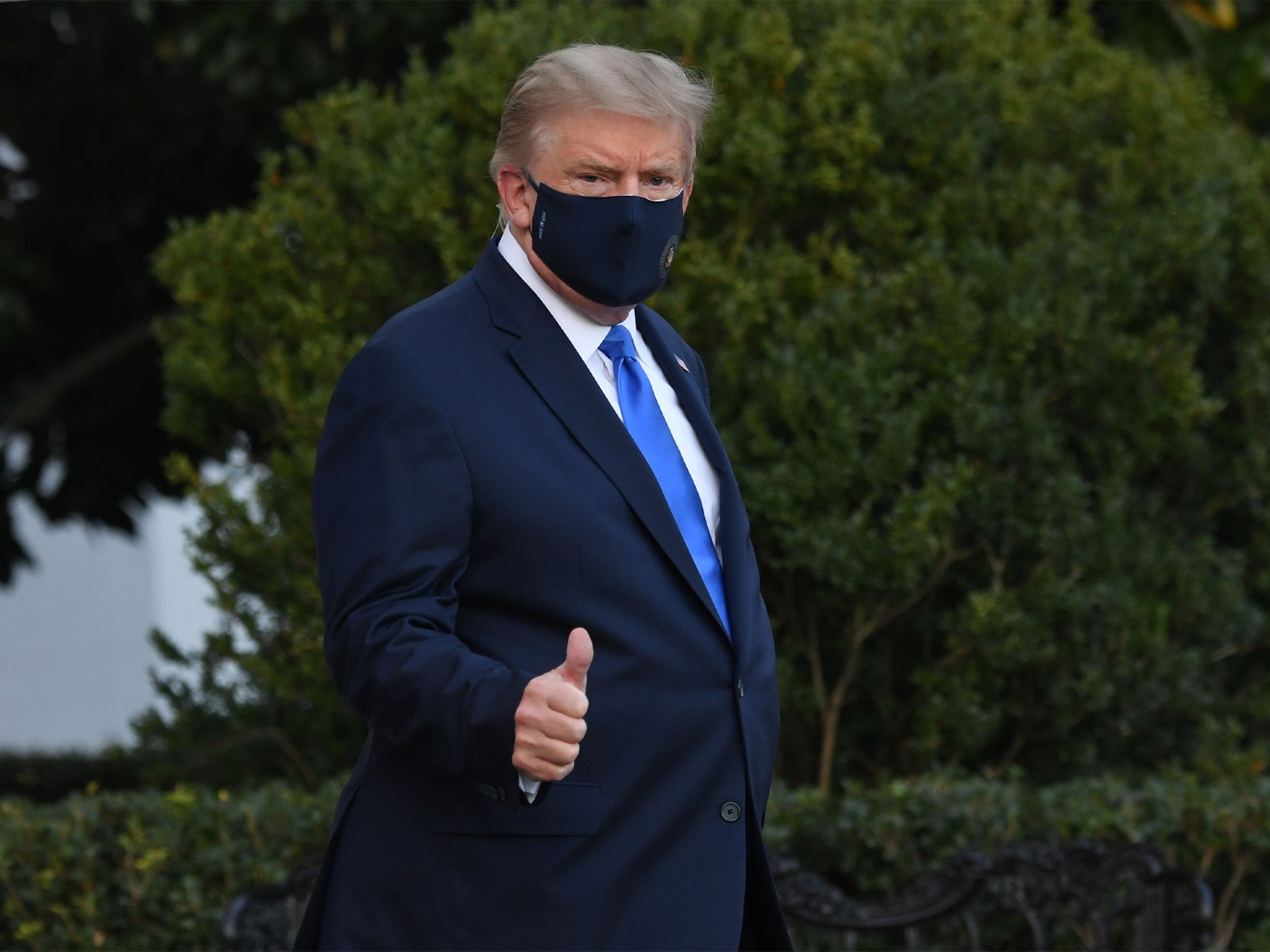Coronavirus: What is Trump’s medicine Remdesivir and is the drug used in the UK?
Trump has been hospitalised and is undergoing coronavirus treatment with the drug Remdesivir

Your support helps us to tell the story
From reproductive rights to climate change to Big Tech, The Independent is on the ground when the story is developing. Whether it's investigating the financials of Elon Musk's pro-Trump PAC or producing our latest documentary, 'The A Word', which shines a light on the American women fighting for reproductive rights, we know how important it is to parse out the facts from the messaging.
At such a critical moment in US history, we need reporters on the ground. Your donation allows us to keep sending journalists to speak to both sides of the story.
The Independent is trusted by Americans across the entire political spectrum. And unlike many other quality news outlets, we choose not to lock Americans out of our reporting and analysis with paywalls. We believe quality journalism should be available to everyone, paid for by those who can afford it.
Your support makes all the difference.President Donald Trump has been taken to a military hospital after his coronavirus symptoms worsened and is being treated with the anti-viral drug Remdesivir.
Trump revealed via Twitter yesterday that he and first-lady Melania Trump had both tested positive for the virus after they took a test following the announcement that senior aid Hope Hicks had contracted covid.
On Friday night, he communicated on Twitter for the first time while in hospital, saying: “Going well, i think! Thank you to all. LOVE!!!”
Commentators have noted that it remains rare for a president to stay overnight in hospital, given the extensive medical facilities available in The White House.
White House physician, Dr Sean Conley, said that the president was “fatigued but in good spirits.”
In a follow up, Mr Conley said that Trump was “doing very well [and] not requiring any supplemental oxygen.”
He added that the president is being treated with the anti-viral drug Remdesivir, used in the US to shorten patient’s hospital stays.
The drug was created in 2009 by Gilead Sciences Inc and was originally proposed for treating hepatitis C, however scientists incidentally discovered that Remdesivir was effective for treating many other viral infections.
In 2014, the drug was studied as a possible treatment for ebola and found to be useful against Severe Acute Respiratory Syndrome (SARS) as well as the Middle East Respiratory Syndrome (MERS). Both viruses are structurally similar to Covid-19.
However, studies on the drug have only been carried on test tubes and animals and no human trials have ever taken place with Gilead maintaining that Remdesivir is an “experimental medicine that does not have established safety or efficacy for the treatment of any condition.”
Subsequently, scientific experts have warned that Remdesivir is no “silver bullet” and its effectiveness is widely debated.
A Chinese study, recently published in The Lancet, found the drug did not improve recover time or reduce mortality risk when it was tested on patients in comparison with a placebo.
However, a report published in The New England Journal of Medicine in April, found that the drug shortened recovery time by four days, from 15 to 11.
The drug was first approved as an effective means to treat covid symptoms in May 2020 and in the US Remdesivir is given to patients with severe and prolonged symptoms, from 10 days onwards.
Meanwhile in the UK, health officials announced that it would only be available to “selected NHS patients.”
The Department of Health said in a statement: “The drug will be used in adults and adolescents hospitalised with severe Covid-19 infection who meet clinical criteria suggesting they have the greatest likelihood of benefitting.”
Other countries that have approved the drug for use against Covid-19 include Japan, South Korea, Taiwan, India, Singapore and Australia.
Earlier this month, it was reported that India and Pakisran have ramped up their Remdesivir production after signing licensing agreements with Gilead.
The Trump administration stockpiled the drug in July, buying up 500,000 doses from Remdesivir’s manufacturer.
Consequently, the UK is rationing its resources and there is a worldwide shortage of the drug.





Join our commenting forum
Join thought-provoking conversations, follow other Independent readers and see their replies
Comments